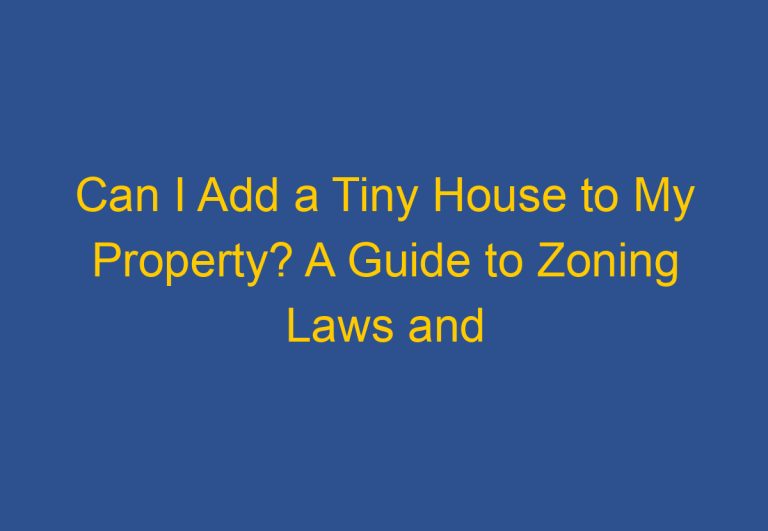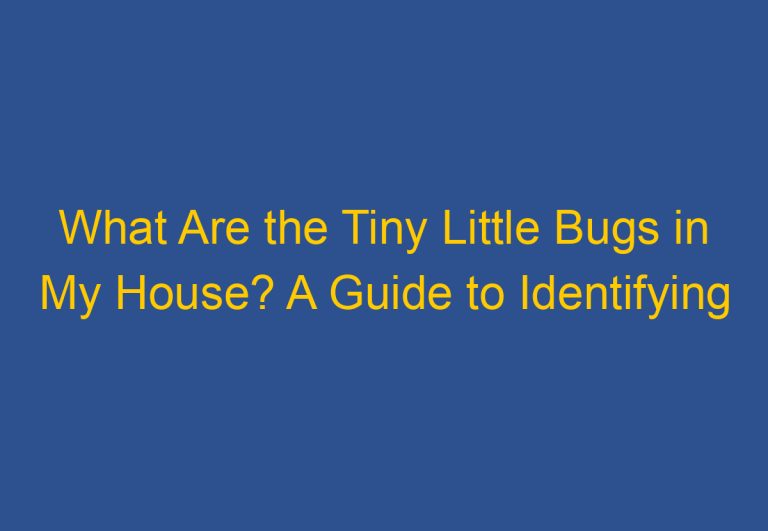Does Tiny House Nation Pay for the Houses? Explained
Tiny houses have become increasingly popular in recent years, thanks in part to the reality TV show “Tiny House Nation.” The show follows hosts John Weisbarth and Zack Giffin as they help families build and design their dream tiny homes. While the show has garnered a dedicated following, many viewers have wondered if the show pays for the houses featured on the program.
According to research, the homeowners themselves are responsible for funding the construction of their tiny homes, including the materials, labor, and any additional costs that may arise. On “Tiny House Nation,” financial considerations play a crucial role in determining who pays for the houses featured on the show. While the show does not pay for the houses, it does provide a platform for homeowners to showcase their tiny homes and share their unique stories with a national audience.
Despite the show’s popularity, some critics have raised concerns about the feasibility of tiny homes as a long-term housing solution. While they can be an affordable and eco-friendly option for some, tiny homes may not be suitable for everyone. In the following sections, we will explore the pros and cons of tiny homes and examine whether they are worth the investment.
Tiny House Nation’s Role and Contributions
Concept and Popularity of the Show
Tiny House Nation is a popular home renovation and design show that focuses on the tiny house movement. The show has been on air since 2014 and has gained a significant following due to its unique concept and engaging content. The show features renovation experts and hosts, John Weisbarth and Zack Giffin, who travel across America to showcase inventive small homes and the creative people who live in them. The show has also assisted new families in designing and building their own miniature dream homes in areas no larger than 500 square feet.
Financial Aspects of the Show
When it comes to financing the tiny homes featured on the show, it is important to note that Tiny House Nation does not pay for the houses. The homeowners take on the role of not just designing and building their dream tiny homes, but also shouldering the financial responsibilities that come with it. Being a homeowner means taking on a range of responsibilities, and financial contributions are a big part of that. The show provides a platform for homeowners to showcase their homes, but the financial aspects are left to the homeowners.
Expertise and Host Contributions
The renovation experts and hosts, John Weisbarth and Zack Giffin, bring a wealth of knowledge and expertise to the show. They assist homeowners in the design, planning, renovation, and construction of their tiny homes. They provide guidance and advice on the best practices for building and designing a tiny home, as well as the most cost-effective ways to do so. Their expertise and contributions have helped make Tiny House Nation a popular and informative show for those interested in the tiny house movement.
Overall, Tiny House Nation provides an engaging and informative platform for those interested in the tiny house movement. While the show does not pay for the houses featured, it does provide valuable insights and expertise on how to design, plan, and construct a tiny home. The renovation experts and hosts bring a wealth of knowledge and experience to the show, making it an informative and engaging experience for viewers.
Considerations for Tiny House Living
Living in a tiny house can be an exciting and fulfilling experience, but it is not without its challenges. There are several factors that one should consider before making the decision to downsize and live in a tiny home. In this section, we will explore some of the legal, lifestyle, and logistical considerations that come with tiny house living.
Legal and Zoning Challenges
One of the biggest challenges of living in a tiny house is navigating the legal and zoning regulations. Many municipalities have zoning codes that restrict the size and location of homes, making it difficult to find a legal place to park a tiny home. It is important to research the local regulations and zoning codes before buying or building a tiny house.
Lifestyle and Practicality
Living in a tiny house requires a significant lifestyle change. It is important to consider whether the tiny house lifestyle is practical for your needs and preferences. For example, if you enjoy entertaining guests or need a lot of space for hobbies or work, a tiny house may not be the best fit for you. Additionally, it is important to consider the practicalities of day-to-day living, such as storage, laundry, and cooking.
Logistics and Infrastructure
Logistics and infrastructure are also important considerations when it comes to tiny house living. Parking spaces, availability of land, utilities, and infrastructure are all factors that need to be taken into account. It is important to have a plan for where the tiny house will be parked and to ensure that there is access to necessary utilities such as water and electricity. Additionally, future expansion and resale potential should be considered when choosing a location for the tiny house.
Overall, tiny house living can be a rewarding and fulfilling experience, but it is important to carefully consider the legal, lifestyle, and logistical challenges that come with it. By doing thorough research and planning, one can ensure a successful transition to tiny house living.
Frequently Asked Questions
How much financial assistance do participants receive on Tiny House Nation?
On the reality TV show Tiny House Nation, participants are responsible for funding the construction of their tiny homes, including the materials, labor, and any additional costs that may arise. The show does not provide any financial assistance to the participants.
What compensation do homeowners get for being on Tiny House Nation?
Participants on Tiny House Nation do not receive any compensation for being on the show. However, they do get the opportunity to have their tiny homes designed and built by experts in the field.
Are participants from Tiny House Nation still living in their tiny homes?
Many participants from Tiny House Nation are still living in their tiny homes. However, some have chosen to sell or rent out their homes after the show.
What legal disputes have arisen from Tiny House Nation projects?
There have been some legal disputes related to Tiny House Nation projects. For example, in one case, a participant claimed that the show did not deliver on certain promises made during filming. However, such disputes are relatively rare.
How do Tiny House Nation features impact the cost of a tiny house?
The cost of a tiny house featured on Tiny House Nation varies widely depending on factors such as the materials used, the size and number of windows and doors, the type of foundation, and whether or not a professional is hired to build it. However, being featured on the show can increase the visibility of a tiny house and potentially increase its resale value.
What is the success rate of relationships for couples living in tiny houses featured on the show?
There is no official data on the success rate of relationships for couples living in tiny houses featured on Tiny House Nation. However, the show has featured several couples who are still together and living in their tiny homes.










